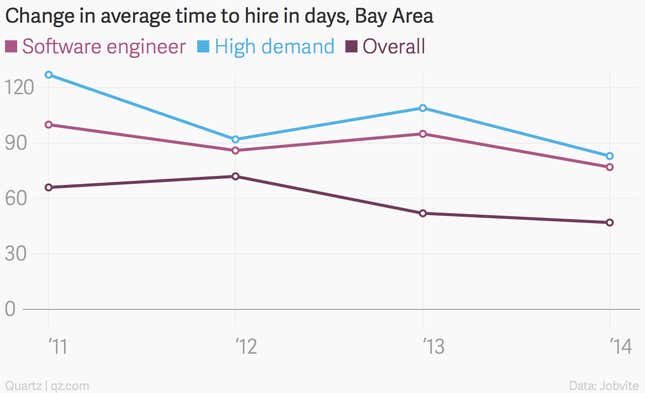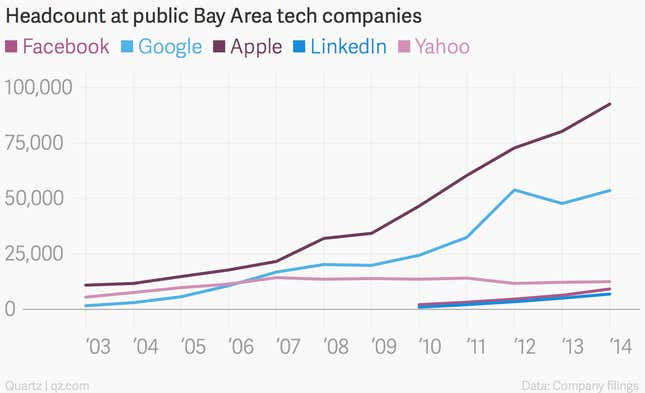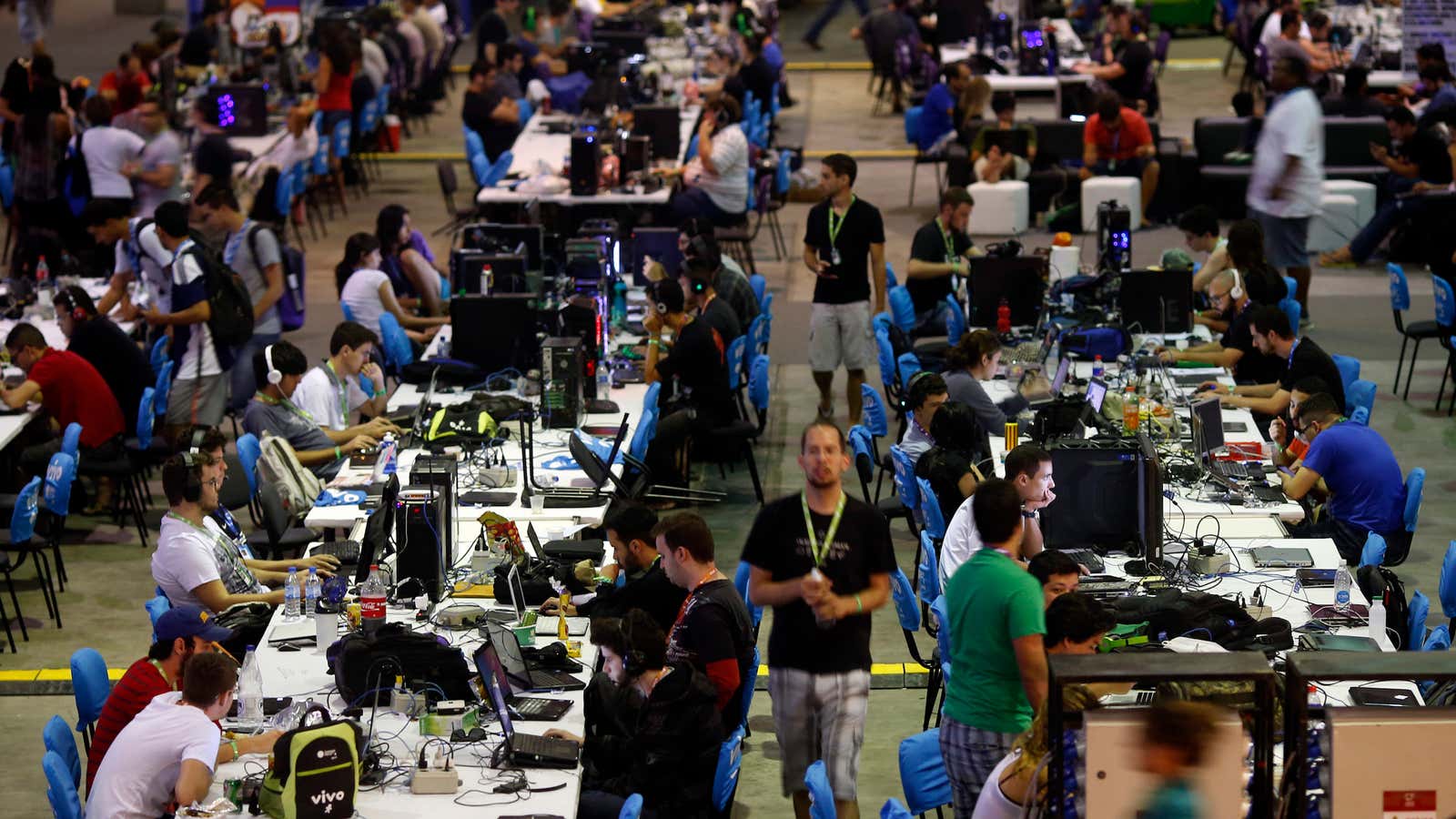There’s plenty of evidence of an increasingly tight labor market in the tech world: ever rising pay; executive and investor griping; floods of aspiring teenage hackers (paywall); the incredible rate of visa applications by companies; and the growth of companies focused entirely on sourcing tech talent.
Ordinarily, as an economy improves and a job market gets tight, the time it takes companies to find people to hire increases. But right now the opposite is happening.
Despite the rapid headcount expansion of big companies such as Facebook and Google, and the continuing growth of venture-backed startups, tech companies are hiring more quickly than ever, according to data from the recruiting software company Jobvite. In the Bay Area, the company found that the average number of days it takes to hire someone for an in-demand tech job has dropped by 66% since 2011.
Jobvite also found a 68% increase in the last year in employees looking to switch jobs, so employees are frequently jumping from one place to another.
Here’s what hiring times look like in San Francisco. The lines on the chart represent: software engineers specifically; an index of particularly in-demand jobs (data scientists, big data engineers, general software engineers, analytics professionals, and security specialists); and jobs in the tech sector in general.

For context, here’s a picture of how headcounts have ballooned at major tech companies. (Note that about half of Apple’s employees work in its retail stores, so its numbers include non-tech staff.):

There are a few possible explanations here.
It might be that as they’ve grown, companies have gotten better about cutting down on hiring bureaucracy. Companies have zeroed in on what makes for a successful hire at their company, and have used that information to shorten the process, often using data. Google HR chief Laszlo Bock, for example, mentions in his new book that a data-supported move to limit on-site interviews to four per candidate helped cut the company’s average hire time to 47 days, from 90 t0 180 days.
Another possibility: Companies may have been exaggerating their concerns about a talent shortage in the US to justify hires of cheaper workers from overseas. Or the market might actually be getting looser: After all, there’s been an uptick in engineering school enrollment. As finance has lost some appeal, and coding schools have gotten more popular, qualified graduates are starting to filter into the job market. PhD data scientists are being lured to tech companies, instead of staying in academia. Wages might finally be getting high enough to drive more than enough potential employees to tech companies.
Or alternatively, as JobVite suggests, intense competition and a shortage of talent may be leading companies to reduce their standards and pull the trigger on hires more quickly. Since there are so many opportunities for qualified candidates with in-demand skills, offers come quickly and they come high.
“Overall, we’re seeing companies across industries hiring much faster than previous years,” Jobvite CTO Adam Hyder told Quartz. “For the positions in highest demand, sourcing this talent can take companies a long time. However, once hiring managers find this talent, they’ll hire immediately. We’re also seeing that companies are willing to invest in training employees that may not be the perfect fit if it means a quicker hire.”
Either way, it seems like a pretty good time for anyone with a computer science degree to move out West.
